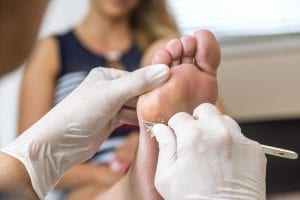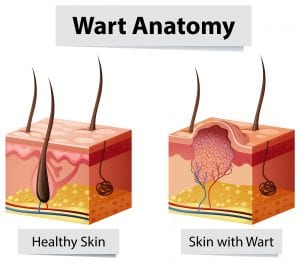What You Need to Know about Warts
- office-locations
- our-doctors
- services
- skin-conditions
- skincare-tips

You probably know that warts are contagious and that they’re growths on the top of the skin. You may not know that warts are caused by viruses called human papillomavirus (HPV). You’re more likely to get warts if you cut or damage your skin and they spread easily through contact.
Warts are often skin-colored and feel rough, but they can also be darker or flat and smooth.
There are several different kinds of warts, like common warts, plantar warts on the bottom of the foot, flat warts and filiform warts. At Charleston Dermatology, we’ve seen them all and can help you manage the treatment of this common nuisance!
It’s true that anyone can get warts, but they’re most common in children and teens, or in people who have a weakened immune system. If your child has warts, don’t worry too much. They may go away without treatment. However, if they cause pain or bother your child, or are multiplying,make an appointment with us to explore treatment options.
Warts are so common because they are caused by HPV, which is a virus that easily spreads through cuts and scrapes on the skin— and you guessed it, that’s why so many children get warts! If you touch a wart by accident on someone else’s body, you can get warts, and sometimes people even get warts from touching something that has come in contact with a wart, like a towel or a piece of clothing. Usually, it takes a few months for warts to get big enough to see.

Since most warts are harmless and go away on their own, you may not need medical attention. If they’re not going away, or if they hurt or are spreading,make an appointment with us. We may use excision or cryotherapy, or we may paint it with cantharidin or resort to electrosurgery or curettage. For more severe cases, we would likely try laser treatment, chemical peels, bleomycin or immunotherapy.
To prevent warts from spreading, make sure not to pick or scratch at them, and be careful about wearing flip-flops or pool shoes at the gym. Don’t touch other warts and keep the area dry, since moisture encourages warts to spread.
If you’re experiencing persistent trouble,make an appointment with us today!
Source:https://www.aad.org/public/diseases/contagious-skin-diseases/warts#tips
